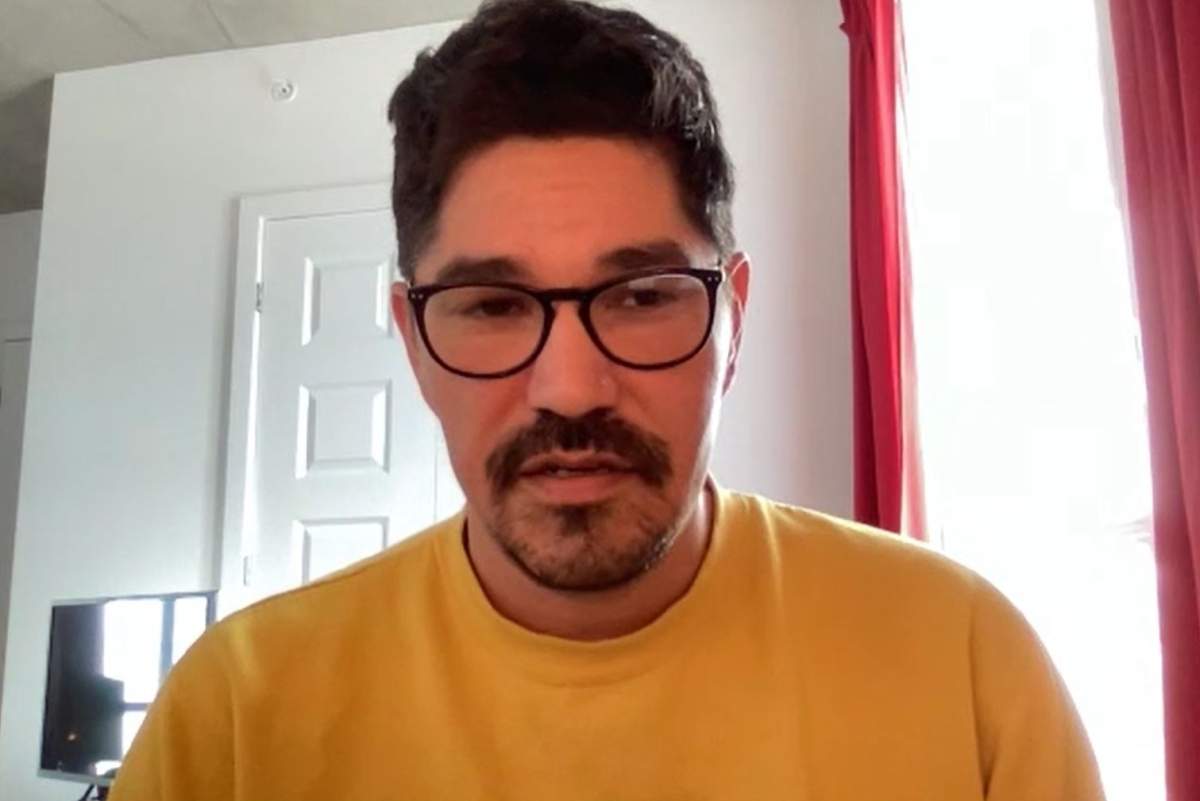As members of the Cowessess First Nation and survivors of residential schools look ahead to Saturday night’s Grave Site Vigil, many are using the time to reflect and as a chance to share their stories.

Smudge and prayers in the tipi begin at 7:30 p.m. followed by a moment of silence at 7:51 p.m. for the 751 unmarked graves announced to the world on Thursday.
Several guests will be on hand to speak before the viewing of the solar lights representing the lives lost.
Eagleclaw Bunnie Thom grew up just outside La Ronge, Sask. and although he didn’t attend a residential school, the reality of it was all around him.

Many of his family members were removed from their homes and placed into Marieval Indian Residential School including his sister, Amber K.K. Pelletier, father, Bernard Bunnie, along with his moshum, Norman Bunnie, and kohkum, Matilda Lavallee Bunnie. His brother, Clayton Episkenew, and stepfather, Paul Clayton Episkenew, both attended Lebret Residential School.
Thom was sent to public school in Regina when he was four years old.
“I would get threatened by the teachers and principals at my school that if I didn’t quit misbehaving in class, and this is a four-year-old that they’re talking to, that they would have to call child and family services on my family,” Thom said.

Get daily National news
“I remember the principal telling me to sit down, taking off his belt, heating it up on the radiator and then slapping the back of my hands with it … it felt like hours, it could have been 10, 15 minutes.”
What made this especially hard was Thom said he was dealing with the loss of his father who was murdered in Calgary in 1985.
“My father escaped residential school a few times. The last time he escaped residential school, he ran all the way to Calgary at the age of 16,” Thom said.
Thom said he recently spoke with his uncle about the news of the hundreds of unmarked graves found at Marieval Indian Residential School. His uncle believes they have relatives among the buried.
“These are kids. Kids, we never got to bring home,” Thom said.
For the family members who did make it out, the pain is something he says will live in them forever.

“The ones who attended residential schools brought it with them throughout the rest of their lives and they’re still working on it,” Thom said.
Pelletier attended residential school from 1993 to 1997 and was the youngest survivor interviewed by the Truth and Reconciliation Commission.
Among the memories, Pelletier remembers having her hair cut when she arrived along with being given a number.
“We could tell when the keepers were mad because they would, they would use our number to call us or to talk to us. In breakfast line or supper, dinner line, if we were acting up they’d say, ‘Number 20.’ And then you just stopped whatever you were doing,” she was quoted as saying in TRC’s 2015 The Survivors Speak report.
“It’s a heavy weight, but you get used to it,” Thom said. “You learn how to separate yourself from your family or separate yourself from thinking about things like this.”
Those attending Saturday’s vigil are being told not to park close to the site of the unmarked graves. The capacity limit is 150.

Anyone experiencing pain or distress as a result of their residential school experience can access the 24-hour, toll-free and confidential National Indian Residential School Crisis Line at 1-866-925-4419.










Comments
Want to discuss? Please read our Commenting Policy first.